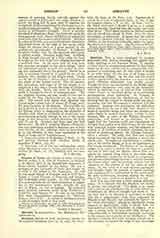
Absalon of Lund
A famous Danish prelate, b. in 1128, at Finnestoe, in Seeland; d. 21 March, 1201

Absalon of Lund, also known as AXEL, a famous Danish prelate, b. in 1128, at Finnestoe, in Seeland; d. March 21, 1201, in the Benedictine monastery of Soroe (Sora) founded by his father. He was a graduate of the University of Paris, and taught for a while in the school of Ste. Genevieve. In 1158 he was made Bishop of Roskilde, and in 1178 Archbishop of Lund, Primate of Denmark and Sweden, and eventually Papal Legate. In this capacity he labored zealously for the final extirpation of paganism in the Scandinavian world, notably on the Isle of Rugen, its last stronghold. He exercised great political influence under King Waldemar I (1155-81) and Canute VI. It was at his request that Saxo Grammaticus composed his “Historiae Danicae Libri XVI”. A tribute to Absalon is found in the fourteenth book of that work.
THOMAS J. SHAHAN

